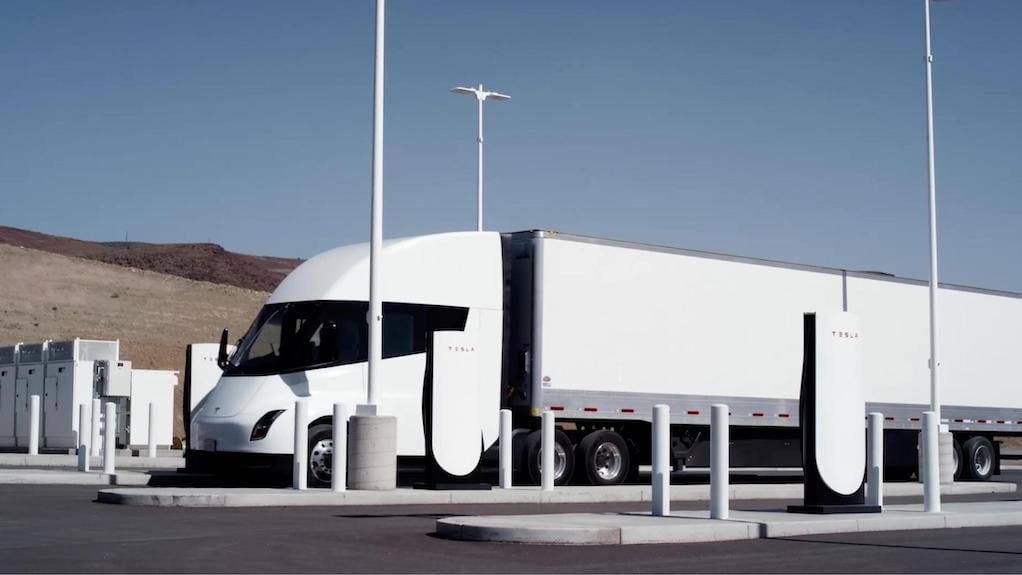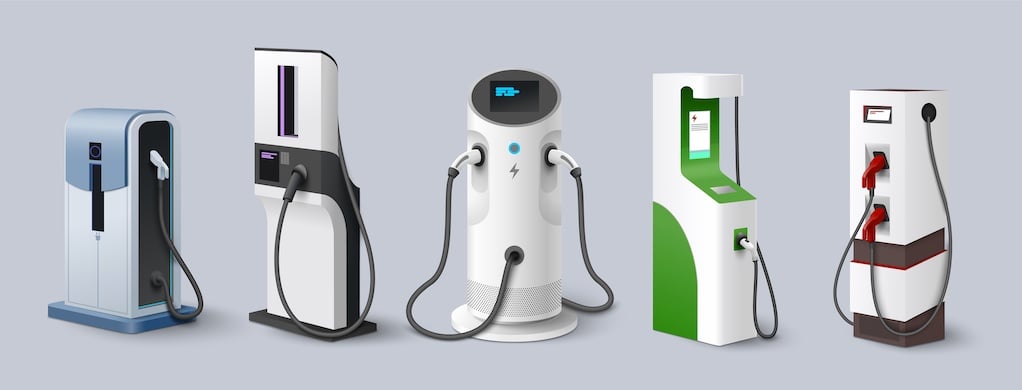As electric vehicles (EVs) continue their march toward becoming the standard mode of transportation, forward-thinking commercial real estate tenants must consider the role EV charging infrastructure plays in both day-to-day operations and long-term sustainability goals.
The integration of EV charging stations is no longer a perk—it’s a strategic necessity that speaks directly to tenant satisfaction, operational efficiency, and future-proofing real estate investments.
The landscape will continue to shift, and now the question isn’t whether to adopt EV charging infrastructure, but rather how quickly can your commercial portfolio adapt to meet the demands of a new generation of employees?
Want to learn more? Read on, you'll learn:
- Why EV charging infrastructure will be essential for future-focused tenants
- How EV adoption influences tenant attraction, retention, and operational efficiency
- The importance of charging infrastructure for industrial tenants
- How EV charging stations can unlock federal funding and future-proof portfolios
The Demand for Electric Vehicle Infrastructure is Surging
It's clear that EV adoption is on the rise. While some markets have seen fluctuations, the long-term trend is clear: electric vehicles are here to stay.
Projections suggest that by 2030, EV sales could represent up to 50% of new vehicle purchases in the U.S., with some politicians pushing for aggressive targets of 500,000 EV charging stations nationwide.
This shift demands that commercial properties adapt quickly by offering robust EV charging infrastructure.
|
"Workplace EV charging sessions are growing twice as fast as station installations. EV registrations will increase at an annual average rate of 40 percent over the next five years." -Propmodo |
For large-scale tenants and corporate real estate directors, this means that decisions about leasing or renewing space must consider the availability of EV charging stations.

Tenants not only want ample charging station infrastructure for their employees, clients, and fleet vehicles, but they also expect the latest technology—DC fast charging, ultra-fast charging, and AC charging—to meet the varying needs of different EV models and hybrids.
EV Charging as a Tenant Attraction and Retention Strategy
For businesses, considering how to accommodate an employee with an electric vehicle or hybrid has become a foremost concern. For EV owners, the availability of charging infrastructure has become a make-or-break factor when selecting workspaces or deciding where to live. In fact, the absence of EV charging stations can deter potential high-value clients and may result in lower tenant satisfaction for existing occupants.
Integrating electric vehicle charging stations is also about more than just offering convenience—it’s about attracting EV drivers and future-proofing the property.
|
"We believe in an all-electric future... The right thing to do was to get our entire portfolio from a light duty perspective to be all electric by 2035." GM CEO Mary Barra |
As public infrastructure continues to grow, businesses housed in properties with EV chargers in place will stand to benefit from higher tenant retention and increased foot traffic from EV drivers. Of course, this has a huge impact for commercial retail spaces like shopping malls or centers.
Publicly accessible chargers in parking garages or adjacent to key areas provide flexible options that support slow charging, rapid charging, and DC fast charging solutions. Businesses increasingly want the ability to offer EV owners more flexible charging opportunities, ensuring that their employees’ or customers’ EV batteries are powered efficiently throughout the day.

Charging Station Infrastructure for Electric Semi Trucks
Operationally, large-scale industrial tenants with vehicle fleets need to consider the strategic benefits of integrating electric vehicle infrastructure into their properties. As the rest of the world turns electric, so will trucking and shipping.
In the long term, tenants with vehicle fleets will experience lower operating costs with electric vehicles when compared to their internal combustion engine counterparts. EV adoption is an opportunity to reduce fuel costs and shift toward sustainable fleet management.

And as the shift to electric vehicles accelerates, fleet operations will require fast-charging solutions to keep up with logistics demands. Power quantity becomes a critical factor, as properties must be equipped to handle the heavy-duty electrical requirements of fleet charging. Planning for this infrastructure now, including DC fast chargers and heavy-duty vehicle ports, is one of the wisest long-term investments these tenants can make.
|
According to CNBC, each mile traveled with diesel fuel is 20% more expensive than electric energy. |
Businesses that rely on logistics and long-haul operations will find fast charging stations essential for maintaining efficiency. The rise of EV models designed for corporate fleets means companies must offer fast and cost-effective charging solutions to remain competitive. Want to read more about the electrical power requirements for semi-trucks? Is Your Warehouse Ready for the EV Revolution?
Reducing Range Anxiety and Boosting Sustainability Goals
Another key consideration is range anxiety, a common concern for EV owners who worry about the availability of public chargers while commuting or traveling. Tenants and landlords alike can help ease this anxiety by integrating multiple charging ports and charging points in strategic locations across a property, particularly in parking garages and high-traffic areas. By offering reliable charging options, companies show a commitment to environmental sustainability while enhancing the overall user experience for employees and customers alike.
In addition, integrating EV infrastructure plays a pivotal role in helping large organizations meet their sustainability and ESG goals. For tenants that have committed to reducing their carbon footprints, supporting the use of electric vehicles via onsite EV charging not only improves their environmental standing but also aligns with broader corporate sustainability objectives.
Additionally, commercial properties that install EV charging infrastructure may qualify for federal funding, grants, and tax incentives aimed at supporting private investment in electric vehicle infrastructure. Not to mention that EV charging points go a long way for the building to receive LEED certification. Businesses also benefit from being tenants in LEED certified leases by reducing their companies' carbon footprints and boosting eco-friendly reputations.
The Necessity of Future-Proofing Real Estate Portfolios
As EV sales rise and more EV models enter the market, real estate properties without EV charging sites will risk becoming obsolete. Properties outfitted with fast chargers, charging stations, and publicly accessible chargers will be better positioned to serve growing numbers of EV drivers, thereby enhancing long-term property values and tenant satisfaction. Additionally, the push for widespread EV adoption has created a charging market ripe for innovation and expansion.
Tenants looking to expand their operations in the years to come must consider the inclusion of EV charging infrastructure as part of their overall real estate strategy.

Incorporating EV charging stations today ensures properties are aligned with future market demands and remain competitive as EV adoption accelerates. Forward-thinking tenants, CFOs, and real estate executives must act now to integrate EV charging infrastructure and prepare for a future where electric cars dominate the roadways.
Takeaways for Corporate Tenants
The transition to electric vehicles presents a unique opportunity for forward-thinking tenants to differentiate themselves, reduce operating costs, and future-proof their businesses. By investing in comprehensive charging infrastructure, tenants can not only attract and retain top talent but also position their organizations as leaders in sustainability and innovation. The road to widespread EV adoption is clear, and commercial real estate properties with EV charging stations will be the ones leading the charge.
As the demand for EV charging infrastructure grows, it's crucial for corporate tenants to consider not only how these amenities fit into their operational needs but also how to align their office properties with a holistic strategy that encompasses location, sustainability, and employee satisfaction.
Ready to navigate the complexities of finding your perfect office property? Enroll in our course to discover the key factors that can elevate your workspace strategy, ensuring you meet the evolving needs of your workforce while securing a competitive advantage in the market.








